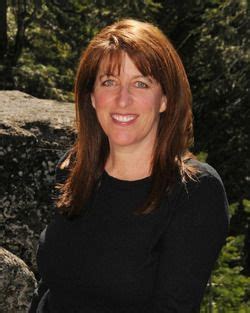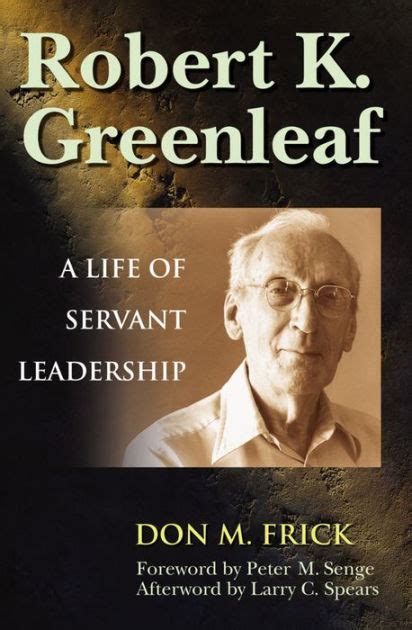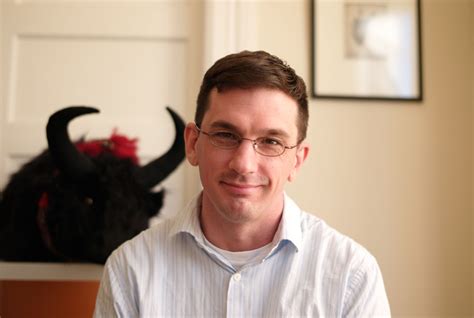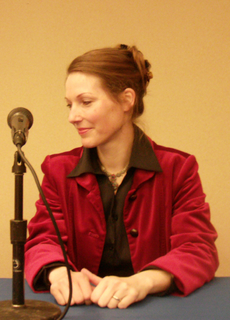A Quote by Markus Zusak
If only she could be so oblivious again, to feel such love without knowing it, mistaking it for laughter.
Related Quotes
All along — not only since she left, but for a decade before — I had been imagining her without listening, without knowing that she made as a poor a window as I did. And so I could not imagine her as a person who could feel fear, who could feel isolated in a roomful of people, who could be shy about her record collection because it was too personal to share. Someone who might have read travel books to escape having to live in the town that so many people escape to. Someone who — because no one thought she was a person — had no one to really talk to.
Her first reaction was one of hope, because his eyes were open and shining with a radiant light she had never seen there before. She prayed to God to give him at least a moment so that he would not go without knowing how much she had love him despite all their doubts, and she felt an irresistible longing to begin life with him over again so that they could say what they had left unsaid and do everything right that they had done badly in the past. But she had to give in to the intransigence of death. (Love in the Time of Cholera)
He was making her feel small and absurdly petulant and, worse yet, she suspected he was right. She always suspected he was right. For a brief irrational moment, she wished she could walk away from him. Then she wished, more rationally, that she could love him without needing him. Need gave him power without his trying; need was the choicelessness she often felt around him.
What do you want? "To know you," she said without hesitation. "All of you. I want to know what makes you feel good." "Your laughter," he said without hesitation. "Feeling your hands on me. The way you look at me, whether I've been a complete dumbass, or just made you come-" With a laugh, she ducked her head, but he dipped his down until she was looking at him again. "You want to know what scared me?" he asked. "Yes" He leaned even closer and slid a hand to the nape of her neck. "The thought of never having those things with you again." -Chloe and Sawyer (Head over Heels)
It seemed a marvel to her that any mortal should suffer for lack of love, and yet she had never known a mortal who didn't feel unloved. There was enough love just in this ugly hallway, she thought, that no one should ever feel the lack of it again. She peered at the parents, imagining their hearts like machines, manufacturing surfeit upon surfeit of love for their children, and then wondered how something could be so awesome and so utterly powerless.
I have to always, always pay homage to a woman I never met but she touched me like she touched so many others with that amazing voice, Whitney Houston. The very first time I heard her voice, I knew I wanted to make people feel that way. Even if I couldn't do all of that that she did, the way she was able to tell my story without even knowing me, the way she could feel what I didn't know how to express, it was spiritual almost.
It's about waking up. A child wakes up over and over again, and notices that she's living. She dreams along, loving the exuberant life of the senses, in love with beauty and power, oblivious to herself -- and then suddenly, bingo, she wakes up and feels herself alive. She notices her own awareness. And she notices that she is set down here, mysteriously, in a going world.
She didn't feel thirty. But then again again, what was being thirty supposed to feel like? When she was younger, thirty seemed so far away, she thought that a woman of that age would be so wise and knowledgeable, so settled in her life with a husband and children and a career. She had none of those things. She still felt as clueless as she had felt when she was twenty, only with a few more gray hairs and crow's feet around her eyes.
He destroyed in her the knowing, doubting, sophisticated Ella, and again and again he put her intelligence to sleep, and with her willing connivance, so that she floated darkly on her love for him, on her naivety, which is another word for a spontaneous creative faith. And when his own distrust of himself destroyed this woman-in-love, so that she began thinking, she would fight to return to naivety.
These are the only two situations possible, and you are in the sad situation. Everybody may know about you - who you are - but you yourself are completely oblivious of your transcendence, of your real nature, of your authentic being. This is the only sadness in life. You can find many excuses, but the real sadness is this: you don't know who you are. How can a person be happy not knowing who he is, not knowing from where he comes, not knowing where he is going? A thousand and one problems arise because of this basic self-ignorance.
She laughed out loud, a warm, knowing laughter that made me once again wonder about the secret ingredient in these women’s lives. Whatever it was, I was clearly missing it. It was so much more than just self-confidence; it seemed to be the ability to love oneself, enthusiastically and unsparingly, body and soul, naturally followed by the assumption that every man on the planet is dying to get in on the act.
She tried to think of what to say to make it all better again, or at least the way it was before she'd made her confession, though she didn't regret having confessed. Perhaps that was what had been wrong with her all along. Now that the lie wasn't between them anymore, maybe she could love him again.
As the Little House settled down on her new foundation, she smiled happily. Once again she could watch the sun and moon and stars. Once again she could watch Spring and Summer and Fall and Winter come and go. Once again she was lived in and taken care of. Never again would she be curious about the city... Never again would she want to live there... The stars twinkled above her... A new moon was coming up... It was Spring... And all was quiet and peaceful in the country.

































